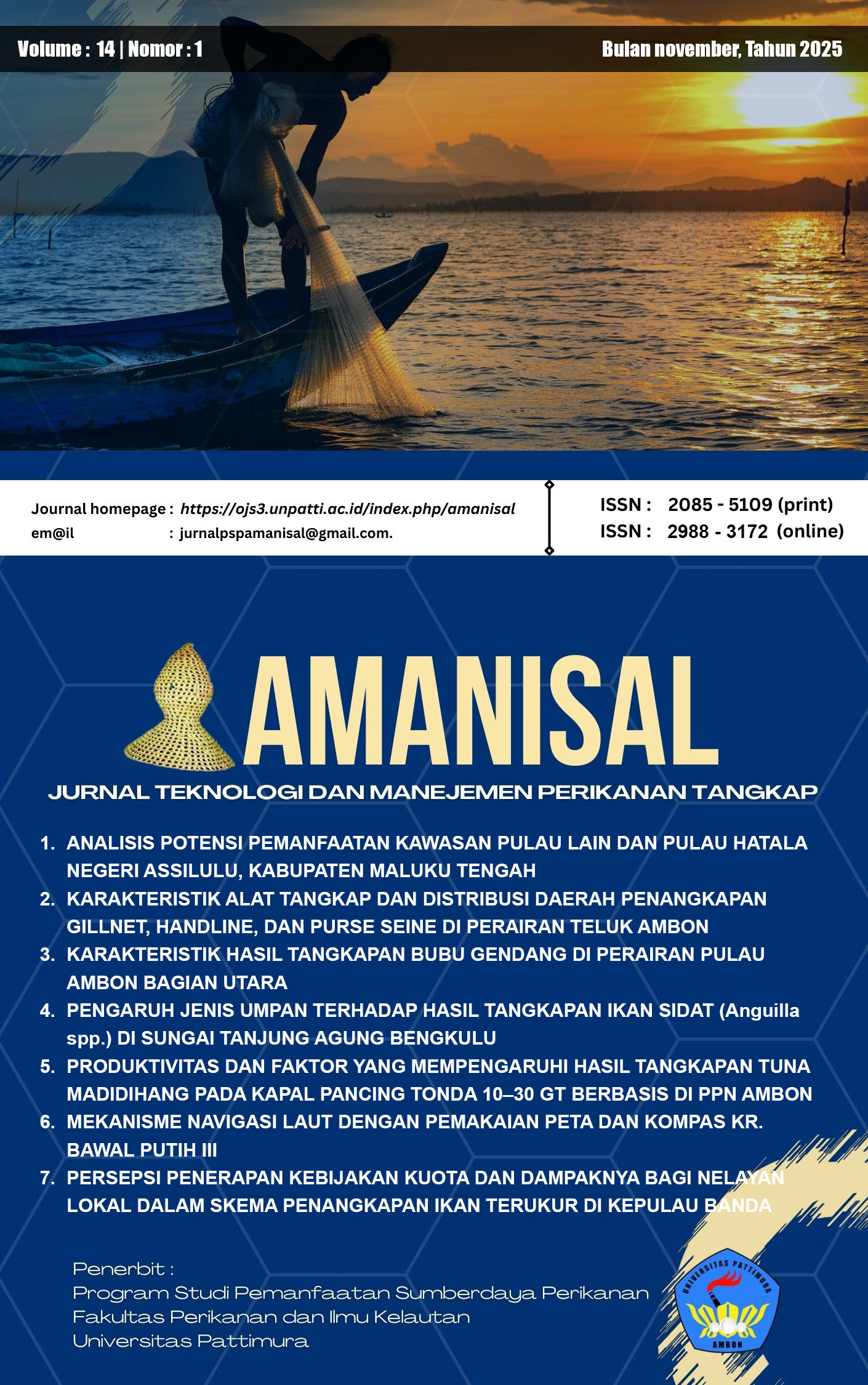PERSEPSI PENERAPAN KEBIJAKAN KUOTA DAN DAMPAKNYA BAGI NELAYAN LOKAL DALAM SKEMA PENANGKAPAN IKAN TERUKUR DI KEPULAU BANDA
Abstract
The quota-based Measured Fishing Policy (PIT) is a new initiative designed to comprehensively reform national fisheries governance. This policy is expected to have significant impacts on small-scale fishers, who are often vulnerable to policy changes due to their socio-economic and technical conditions. Local fishers’ understanding and acceptance of this policy are considered as key factors for the implementation success at the grassroots level. This study aims to identify the socio-economic and technical characteristics of local fishers and to analyze their perceptions of the quota policy implementation and its potential impacts on local fishers within the measured fishing scheme in the Banda Islands. The research was conducted in eight villages across three islands in the Banda Islands, Central Maluku Regency, Maluku Province. Data were collected from September to December 2024 by interviewing 95 respondents who purposively selected from local fishers. Data were analyzed using descriptive quantitative and qualitative methods with a Likert scale approach. The results show that the majority of respondents are in the productive age group, possess low levels of formal education, earn less than IDR 1,000,000 per month, and use conventional fishing gear. In terms of perception, understanding of the PIT policy remains relatively low (36.84% in the "low" category). However, most fishers expressed support for the quota policy’s implementation, especially when local customary institutions and fishing communities involve in the process. They consider that the policy possibly improve fish stock availability, operational efficiency, and income levels. This study recommends to conduct socialization, education, and technical assistance in conjunction to increase the effectiveness of policy implementation and the policy inclusive for small-scale fishers in the Banda Islands.
Downloads
Copyright (c) 2025 Ruslan H. S. Tawari, Putri Hastari, Haruna Haruna

This work is licensed under a Creative Commons Attribution-ShareAlike 4.0 International License.






